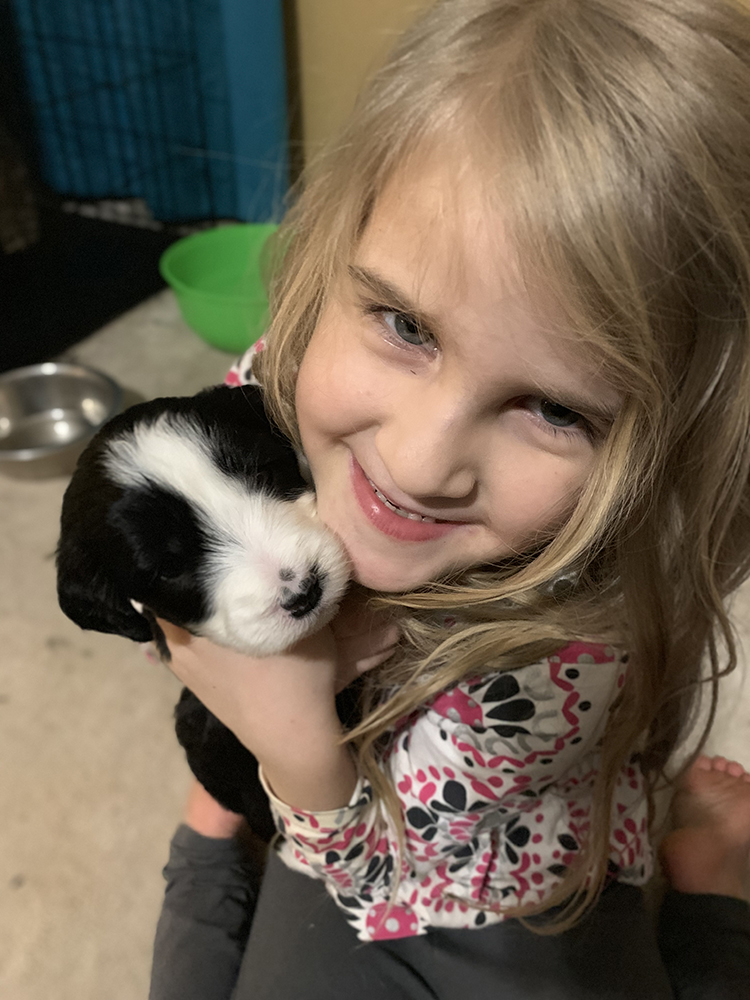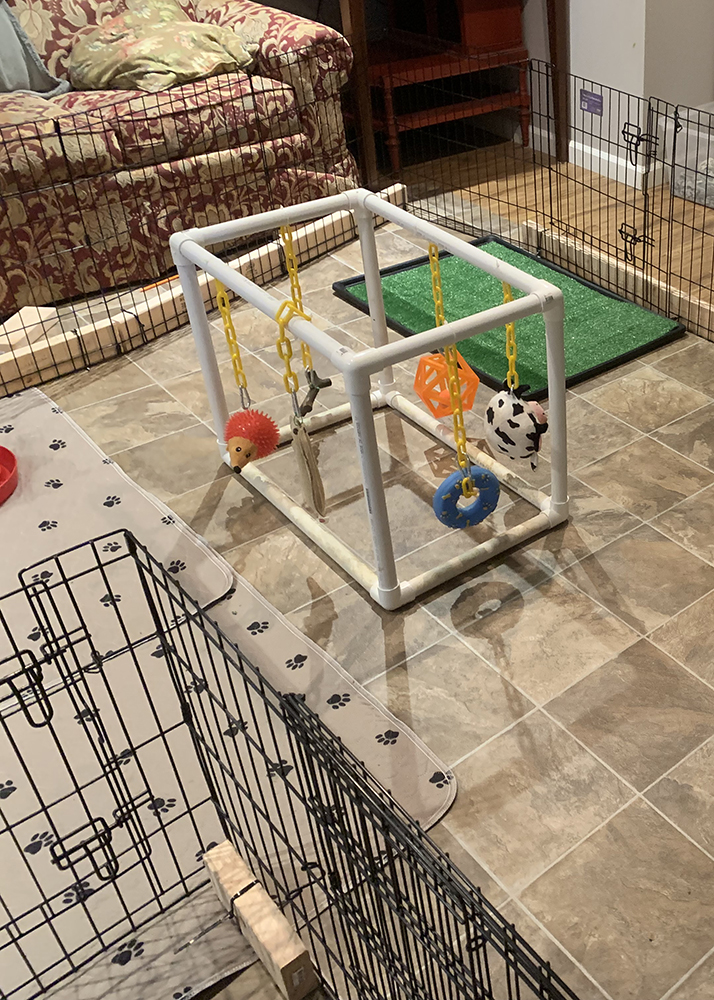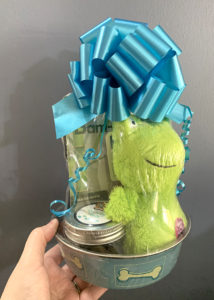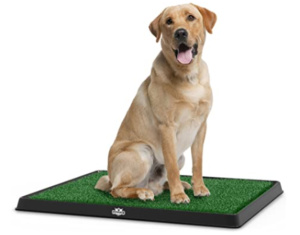From conception to the moment your puppy joins your family, we are dedicated to all stages of your puppy’s care.
Birth: We personally deliver all of our puppies, ensuring that mamas and puppies have everything they need for a great start. Puppies are wiped off, weighed, and given colored colors for identification. We also put collars on our puppies right from the start so that they’ll be used to collars when they go home.
Days 1 & 2: Mama and pups bond. Pups drink nutrient-rich, immune-boosting colostrum from their mama’s teats while we wait for her milk to come in. We supervise mama and pups around the clock to make sure everyone gets a turn at the “milk bar” and stays safe and healthy.

Days 3-16: Around-the-clock care of mamas and pups continues while we add in Early Neurological Stimulation. This is the same program the U.S. Military uses to prepare their dogs for service. Known previously as the “Bio Sensor Program” and now as the “Super Dog Program,” this series of exercises desensitizes puppies to neurological stimuli as well as positively stimulates their brains. Read more about ENS here. Puppies are also handled and snuggled daily, as ENS is not a substitute for proper socialization.

Two Weeks: Puppies open their eyes and ears and begin toddling around. Since they can now hear, puppies are exposed to a variety of sounds. They begin practicing their grunts and growls. There is nothing cuter that a little pup practicing its first sounds.
Three Weeks: We expand the puppies’ pen area, and separate it into two areas: eating/sleeping/playing area and potty area. Puppies begin really starting to play and chew on each other. We introduce simple toys, and continue introducing puppies to familiar household sounds: TVs, vacuum cleaners, noisy children. 

Four Weeks: Between three-and-a-half to four weeks, puppies begin to eat mush. At first, we start puppies on wet food, adding in soaked dry food when they are ready. We introduce puppies to tunnels and puppy play gyms, which have a variety of toys and sensory stimuli. Puppies receive their second set of deworming meds. They are also introduced to crates, that they can freely enter and exit. When introduced to crates early, more often than not, puppies choose to sleep in their crates by themselves or with siblings during downtime.
Five Weeks: Between four-and-five weeks, we expand the puppies’ pen again, and they begin to spend several times a day playing in larger areas of our home and yard. We schedule play time and cuddle time with our kids and puppies, and they really can’t get enough of each other. 
Six Weeks: Between 5-6 weeks, we begin crate training our puppies. They have been getting used to their crates for several weeks already, but we begin putting them with a few of their siblings in crates for naps, letting them out several times for potty breaks. Puppies are dewormed again if needed.
Seven Weeks: Puppies are so much fun at this stage! Their little personalities have been shining for a few weeks now, and they love to run and play outside. At this point, puppies are used to using artificial grass pads for pottying. We start getting the puppies used to going outside to use the bathroom on a regular basis (season and weather permitting). They are eating 3-4 meals of dry puppy food. Beginning crate training is continued, and we begin to work on basic commands like sitting before we eat our food. We discourage our puppies from jumping up and nipping our hands and our clothes. Between six and seven weeks, puppies receive their vet check and first shot, the DHPP. We do fecal testing to make sure our puppies are clear of everything, and puppies are dewormed again before they go home if needed.

Eight Weeks: We prepare your puppy to come home with you by making sure he/she is used to a consistent schedule of eating, sleeping, and going potty outside. We reduce the number of meals, but increase the amount of food at each meal. Before this point, little puppy tummies can’t handle too much at one feeding.
We get paperwork together (including papers from vet visits, records of deworming frequency and kinds, etc.), and we make sure your Puppy Goody Bag is ready to go, too! Then, we get to see the joy on your face when your new family member is finally in your arms!
Please note: We are always learning and revising our process to give our puppies the very best care! We may change things along the way and will do our best to inform you if we do.


















